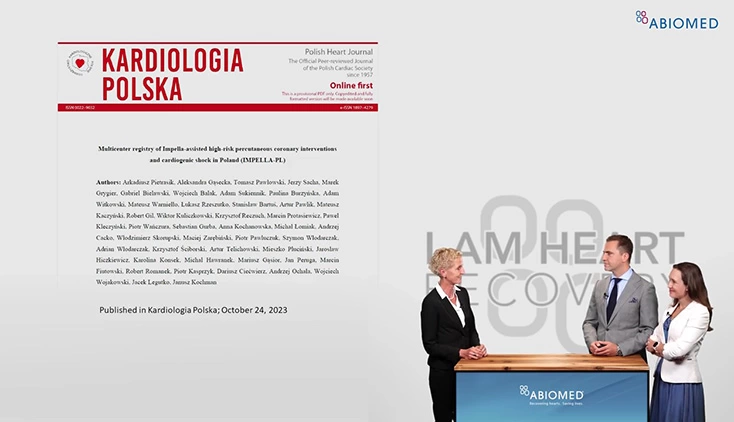Protected PCI
Best Practices for Optimizing Impella Use in High-Risk Patients
“Have you ever thought about how to optimize your Impella® use in your high-risk patients?” Professor Dr. Nikos Werner poses this question in this introduction to the recently published European best practice Supplement on optimizing Impella Protected PCI to improve outcomes after high-risk coronary interventions. Prof. Werner, Heart Center Trier, Krankenhaus der Barmherzigen Brüder Trier, is the guest editor of the publication titled “The Heart of the Matter: Best practice approach on high-risk percutaneous coronary intervention” published in European Heart Journal Supplements Vol 24, Suppl. J, in December 2022.
“The current European best practice takes a deep dive into literature, data, and personal expert opinions,” Prof. Werner explains. “We address standardized approaches for patient selection, device insertion, monitoring, and its post-procedural management since these factors have a huge impact on complication rate and outcomes.”
“The Heart of the Matter” contains 8 articles written by notable experts from several European countries. These articles explore protected, high-risk percutaneous coronary intervention (PCI) and the data behind the use of MCS, most notably the Impella® heart pump, in the management of these patients. The articles cover topics including best practices in Protected PCI, patient selection, standardized pre-procedural clinical workup, anticoagulation with Impella, optimal revascularization strategies, high-risk patient management, bailout and complication management strategies, and related clinical vignettes highlighting these best practices.
Prof. Werner explains that although the concept of Protected PCI is currently supported by one randomized controlled trial, registry data, and consensus documents with conflicting results, operators have widely adopted the use of Impella for hemodynamic support that allows operators to focus on coronary intervention and complete revascularization in patients with complex disease.
Prof. Werner emphasizes that best practices can help the community focus on standards and safety measures that reduce complication rates. “We highly encourage you and invite you to have a look at the European supplement and sincerely hope that it will help you in improving your outcomes of your high-risk PCI patients.”
Sign Up for Latest Updates
NPS-3391


